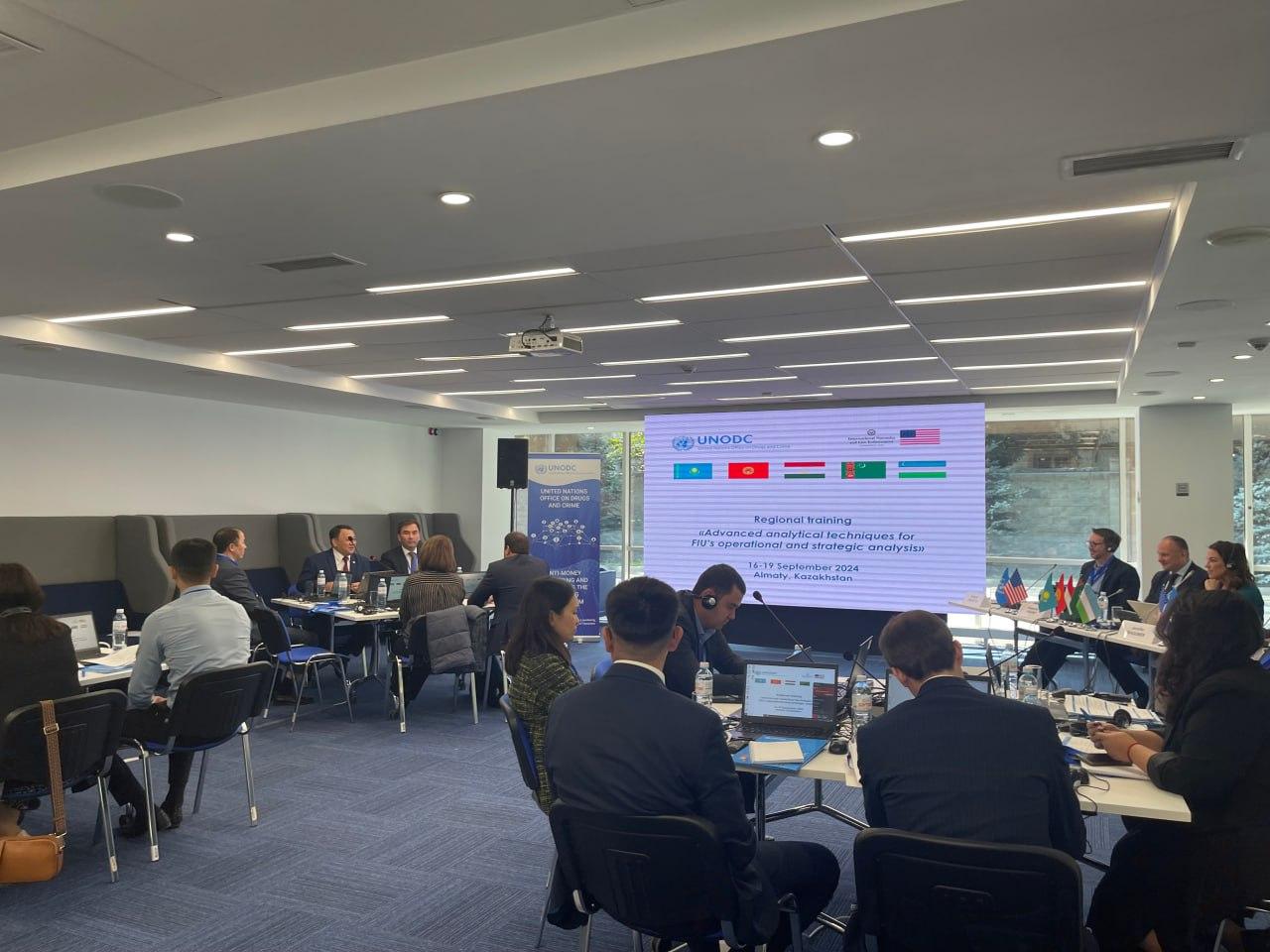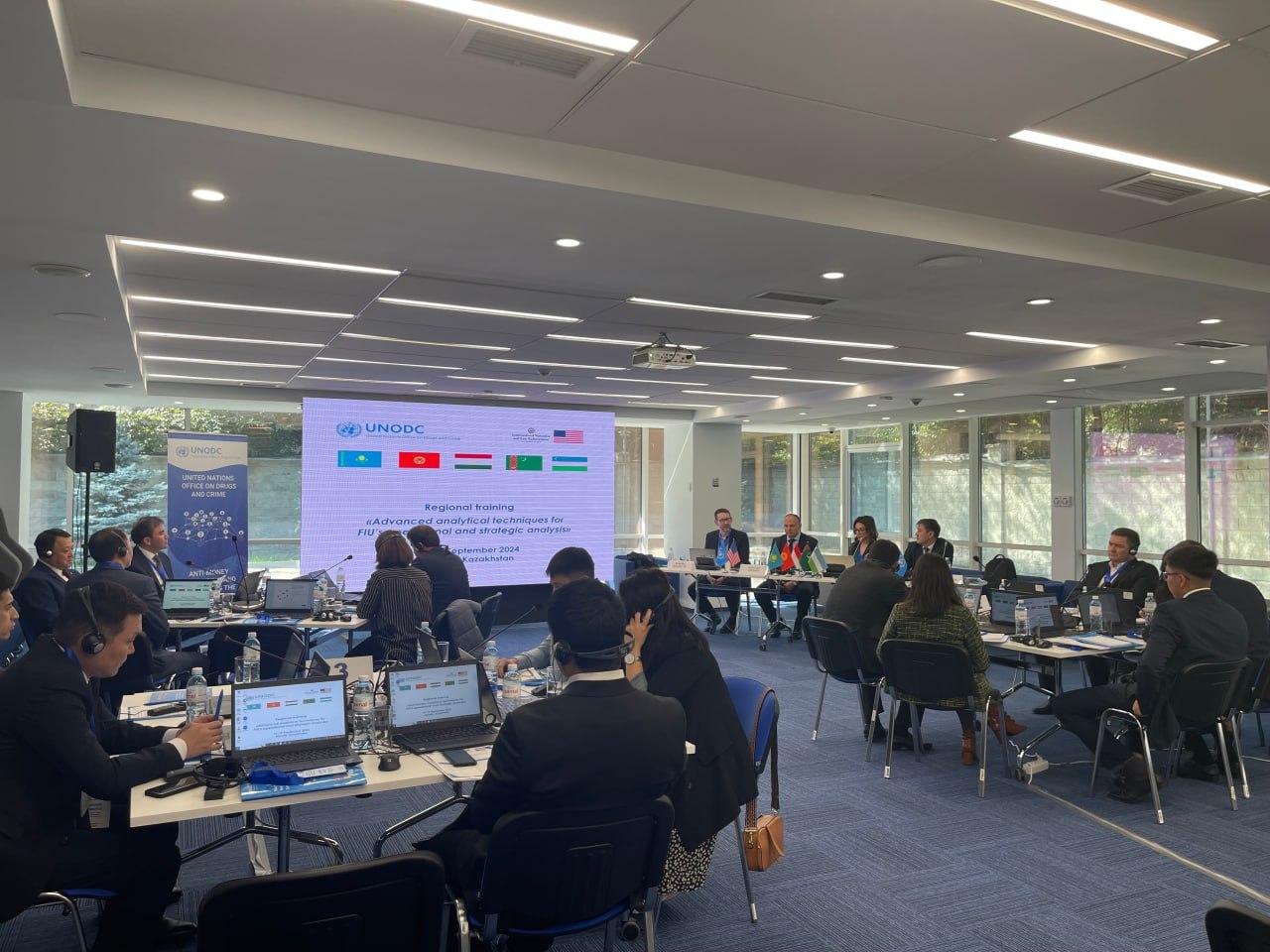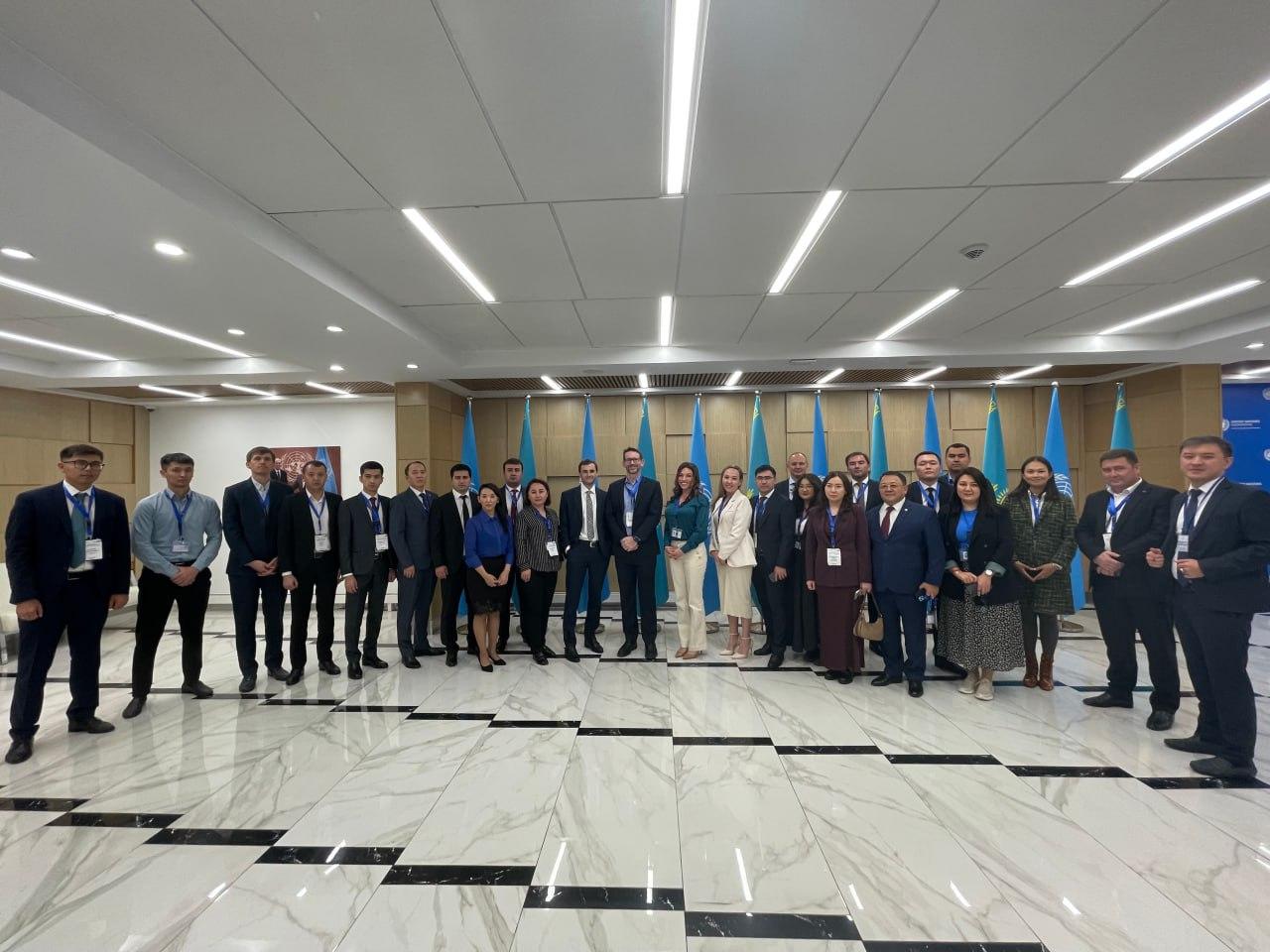Participation in the Regional Training Organized on the Topic “Advanced Analytical Methods for Operational and Strategic Analysis in Financial Intelligence”
Representatives of the Law Enforcement Academy of the Republic of Uzbekistan participated in the regional training held in the city of Almaty, Kazakhstan, on the topic “Advanced Analytical Methods for Operational and Strategic Analysis in Financial Intelligence.”
The purpose of this training was to enhance participants' knowledge on using advanced technologies to utilize information from open sources for intelligence purposes during operational and strategic analysis.
Representatives from state agencies of Kazakhstan, Tajikistan, Turkmenistan, Uzbekistan, and Kyrgyzstan, as well as international experts and specialists from the United Nations Office on Drugs and Crime, participated in this event.
The training was conducted in two parts, namely theoretical and practical, by international experts.
During the event, it was emphasized that with the development of digital technologies, new types of offenses have emerged, which in turn require law enforcement agencies, including financial intelligence units, to use advanced analytical methods based on information from open sources for operational and strategic analysis.
International experts' presentations covered issues such as collecting and analyzing data based on open sources (OSINT), collecting and analyzing information on financial operations (FININT), the tools for collecting information based on open sources and their role in the activities of financial intelligence units, as well as their potential for use in operational and strategic analysis processes, including social media analysis.
Additionally, matters of effective international and interagency cooperation in this field were discussed.
In the second part of the training, during practical exercises, participants were divided into groups to enhance their skills in utilizing OSINT and FININT capabilities.
The experiences of the representatives from Uzbekistan in using such tools to identify offenses related to the legalization of proceeds from crime and the financing of terrorism generated interest among participants.
At the conclusion of the event, participants emphasized that conducting regular training sessions like this would help enhance the knowledge and skills of law enforcement personnel in this area and improve the effectiveness of their activities in detecting offenses and taking appropriate measures.



